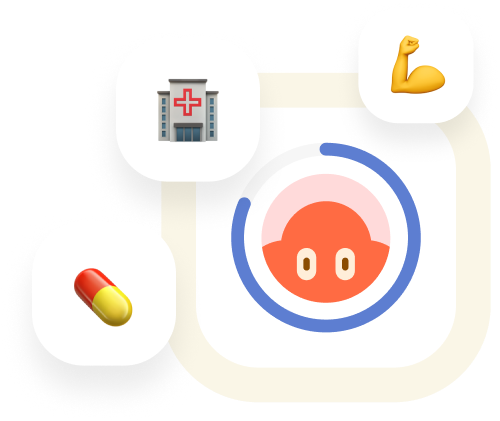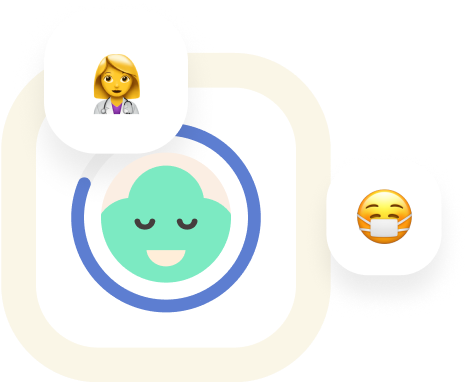I find writing out the brain dump on paper helps, even reduces the need to stim to process the thoughts. Then just figure out how you could come as close to literally saying what you just said here to your doctor. The facts that you've a) research rabbitholed your own dx and b) are too socially paralysed to raise the issue really drive it home, to be quite frank [:
This is actually one of the few things, at least IMHE, that coming in with a literal list of reasons and supporting evidence why you hypothesise what you have shouldn't necessarily get you assumed as a "web md” case and disregarded. The YT of Yo Samdy Sam has a worksheet, if you sign up for the email newsletter, which is a great tool to fill out and bring in to support yourself if you feel alone.
The biggest step in my journey was getting used to the fact that (in general, in life, from now on) I had to learn to first be my own advocate and then secondly to open up and to work with people—because learning/adapting to the name and description of your traits really just means that one of the big hurdles you have a need to overcome is social interaction.
Unfortunately, the dx doesn't make anything intrinsically easier in life—but it DOES give you two important things, IMHO: 1) a second, kinder "intrusive thought" to remind you why you are the way you are and that that's okay—you just need to be patient with yourself, and 2) a way to break through a socially awkward or tense situation by stating either your disability, or the particular needs you know you need met by others in order not to mute or melt down.
ie: "I'm sorry, I have difficulty understanding things sometimes(, I'm autistic); it sounds silly, but could you just say it in a different way for me—like in different words?"
I've found that the KNOWLEDGE that I have this tool in my pocket has, itself, intrinsically made this part of life easier because I am able to live my life in a completely different way, and openly acknowledge that I have to meet the NT world half-way. And opening with "I'm sorry, I [have difficulty sometimes/a disability]" just radically disarms people and generally makes things easier—if you're not talking to a bigot.
I lived 33 years frustrated and confused why nobody ever understands me, and why I don't literally understand or generally relate to anybody else. Situations that were hard for me forced me into all sorts of mental places that i had to mask through without any knowledge of what was really wrong with me or why i became so frustrated so easily all the time, or how to unwind at the end of my day. Understanding the "why"s makes dealing with things indescribably easier. That, and ADHD meds 😄
"How do i tell this to my family or close humans?" was literally my first post-dx question. I appreciated his first response, that bringing up a story or article about either autism itself, or an autist which you identify with in some way, which cites autism as the description of their traits or actions being written about. Then, use their reaction to that to see if you even feel comfortable talking about it/"autism" with them. Maybe drop a few of these stories or links on them and see if they have their own epiphany, "Haha hey that sounds just like yo—wait..."
"Neurodivergence" can be a way around that old stereotype, misinformation disinformation and assumptions sometimes, and reminds folks our brains are literally different and everyone doesn't experience the same.
Good luck and godspeed—you can expect 4-8ish months until being added to a dx eval waitlist, and then that much to a couple years again or longer on that list waiting, in most US places, it seems. So, you'll likely have time to build up to your "coming out" if that helps calm the nerves.





